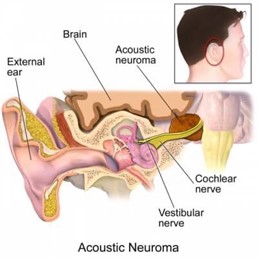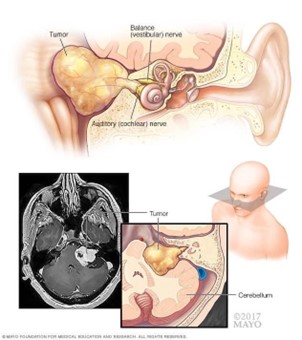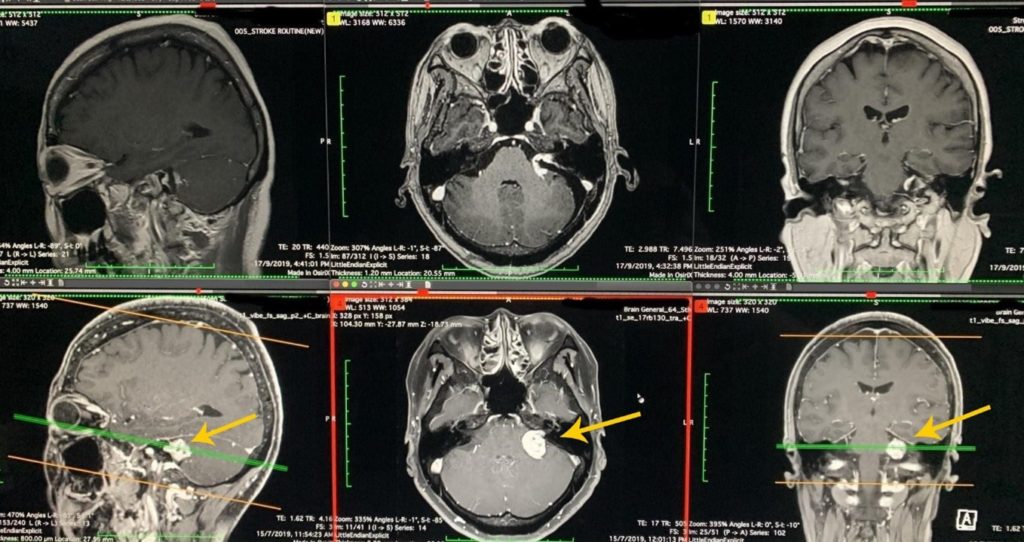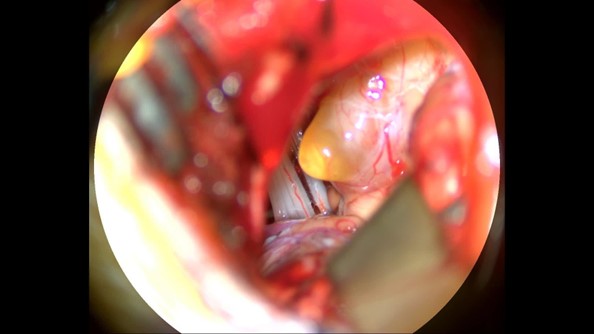Disturbing Tinnitus
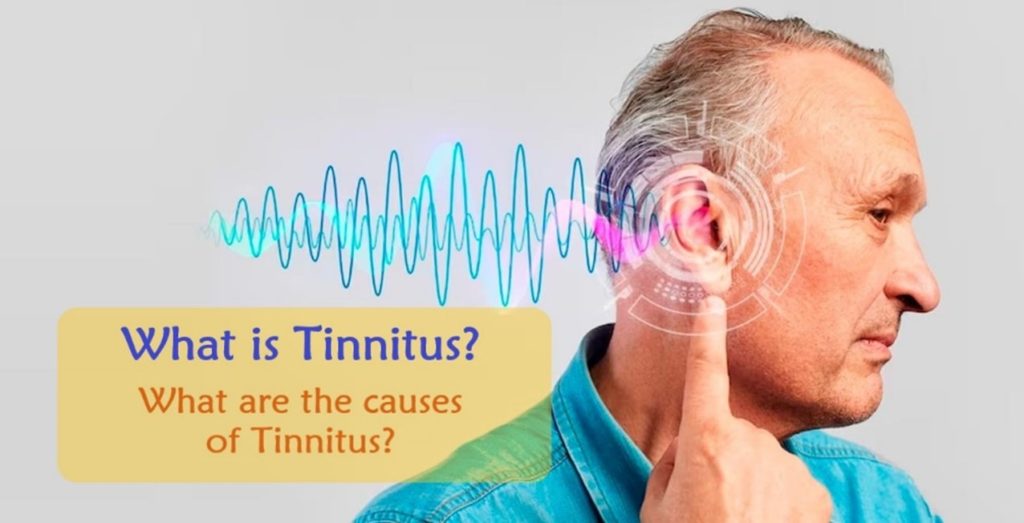
Disturbing Tinnitus
Most adults may have experienced tinnitus during their lifetime, but fortunately most tinnitus will be resolved on its own within a few days or weeks. However, if the symptoms of tinnitus persist, and the root cause of the problem is not from the ear, nose or throat, what should we do?
After the patient had ruling out the possibility of tinnitus caused by internal problems such as ear, nose and throat, the neurosurgeon will examine the patient’s brain and neck in detail to see if tinnitus is caused by nerve or vascular disease.
33-year-old Mr. Lam’s Cervical Disc Herniation Compress the Spinal Cord which is the Central Nervous System
Mr. Lam, 33-year-old, has a healthy life, except for occasional neck pain at work. He has seen a family doctor and an otolaryngologist in the past three months. Although he has undergone a detailed examination and taken medication, the tinnitus still persist day and night. Through the introduction of a friend, Mr. Lam sought consultation from a neurosurgeon for further diagnosis. MRI image with contrast showed that the C5,6 and C6,7 of Mr. Lam’s cervical spine were herniated and compress into the central nerve of the spinal cord, resulting in tinnitus symptoms. As the condition was only mild and surgery was not required, after six months of medication and chiropractor treatment, Mr. Lam’s tinnitus symptoms disappeared. Six months later, MRI results also showed that his two levels of cervical disc herniation had greatly improved.

46-year-old Ms. Zhang’s arteriovenous malformation caused vascular tinnitus:
Ms. Zhang, a 46-year-old lady, sought medical treatment accompanied by her daughter. The left tinnitus that bother her for three months, of which symptoms are different from the ordinary tinnitus, was synchronized with the pulse of her heart. Clinical examination showed that doctors could use the stethoscope on Ms. Zhang’s left head and neck to hear a murmur synchronized with the heartbeat pulse, which is typical of vascular tinnitus caused by the overlapping of arteriovenous malformations. After MRI angiography, Ms. Zhang underwent a two-hour minimally invasive pinhole cerebral vascular catheter surgery.
Cerebrovascular surgeons use tiny titanium wire coils to block the overlapping alternation of abnormal sinuses and cerebral artery vessels near Ms. Zhang’s left ear to block the abnormal arteriovenous blood flow, thereby eliminating tinnitus. After the surgery, Ms. Zhang was happily discharged home, accompanied by her daughter. In addition to tinnitus, doctors say that the risk of hemorrhagic stroke caused by abnormal arteriovenous malformations is also relieved.
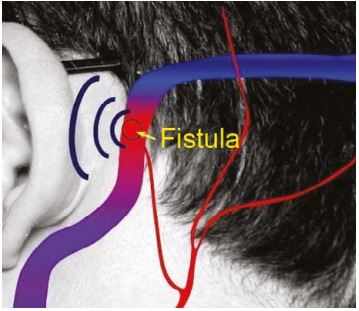
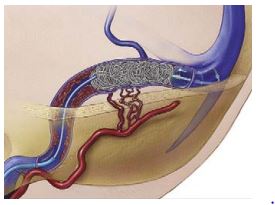
56-year-old Mr. Leung, suffered from Acoustic Neuroma:
Mr. Leung, a 56-year-old businessman, has been bothered by tinnitus day and night in his right ear for the past six months, and an MRI examination by an otolaryngologist shows that a small tumor in the size of five millimeters has grown on his right auditory nerve. Although other examinations also showed that Mr. Leung’s auditory nerve function remained normal temporarily, the doctor said that as the acoustic neuroma (auditory nerve tumor) slowly grew, Mr. Leung’s hearing in his right ear would gradually and eventually be lost. After being referred to the Neurosurgery Specialist, the neurosurgeon discussed three treatment options with Mr. Leung :
(1) conservative observation,
(2) digital knife radiotherapy, and
(3) minimally invasive surgery in neurosurgery to preserve hearing / auditory nerve function.
Although the three treatment options each had pros, cons and risks, Mr. Leung chose minimally invasive surgery in the end. Under four hours of general anesthesia, the neurosurgeons monitored Mr. Leung’s auditory nerve conduction function uninterruptedly during the operation.
Under the microscope, the neurosurgeons carefully remove and separate the five millimeters tumor from the auditory nerve using a one- to two-millimeter microscopic surgical instrument. After the operation, Mr. Leung’s hearing and facial nerve functions were able to remain intact, and no more suffering from tinnitus day and night.
